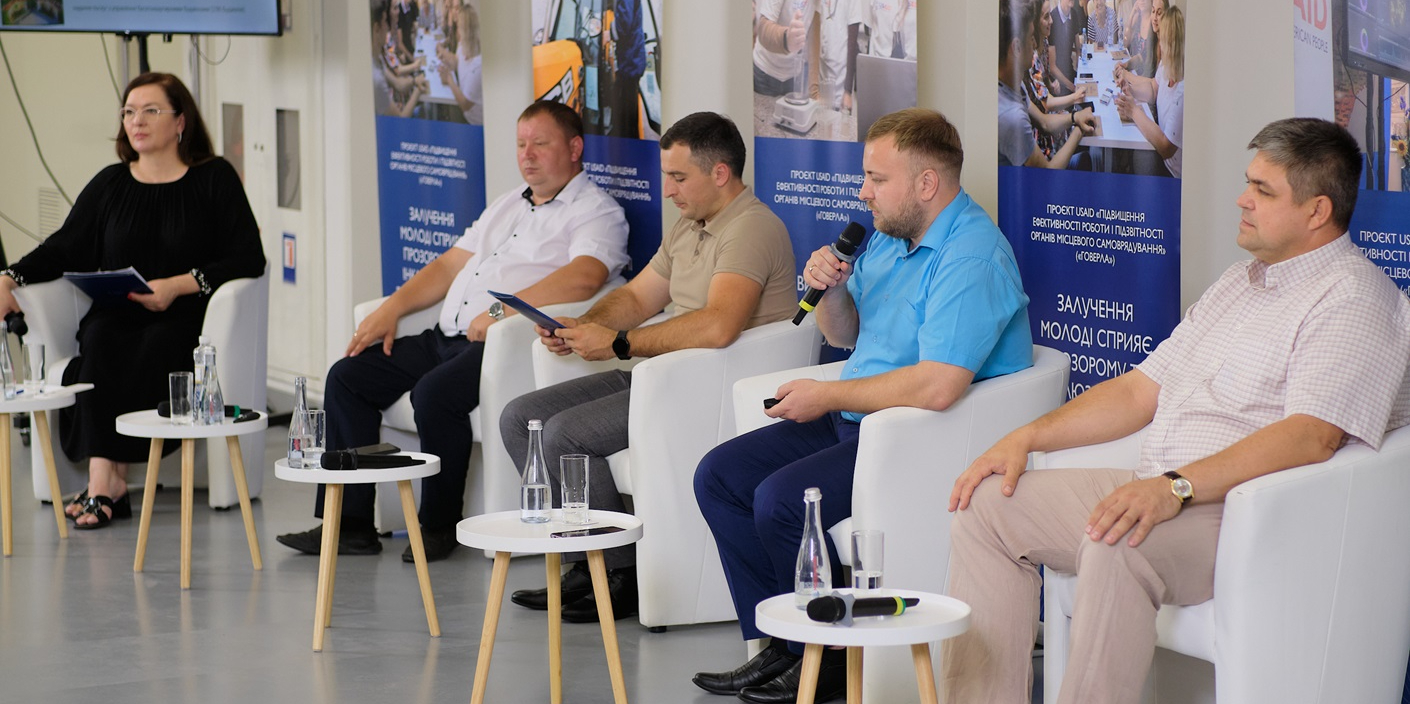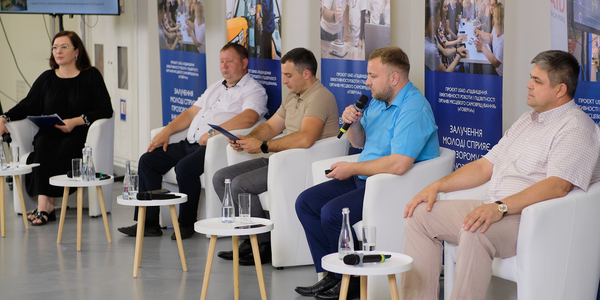Communities Strengthen Their Energy Resilience in Wartime
For the third year in a row, Ukraine's energy infrastructure has been under special enemy attack. The Russian army regularly attacks power plants, gas and water pipelines, leaving millions of people without electricity and water. On the eve of the new heating season, the issue of energy sustainability is particularly acute for communities.
Community leaders and CSOs’ representatives discussed how to survive the winter, establish an energy management system and develop alternative energy sources at the mayors’ briefing held on August 27, 2024. The event was supported by the USAID HOVERLA Activity.
Nowadays, the well-being of residents largely depends on how quickly local governments respond to energy security challenges. Even before the full-scale invasion, in December 2021, HOVERLA began purchasing generators for partner communities. Less than a year later, when Ukraine experienced massive power outages, the equipment enabled citizens to continue receiving essential services without interruption.
To this day, HOVERLA helps to find effective energy solutions and provides generators of various capacities to partner communities. Zviahel community in Zhytomyr Oblast is one of them. Having received 12 high-capacity generators from HOVERLA, Zviahel fully provided electricity to all social and critical infrastructure during power outages.
However, generators alone are not enough to ensure the community's energy resilience, a comprehensive approach is needed. Therefore, in cooperation with international projects, Zviahel community has prepared a Municipal Energy Plan, which aims to reduce fuel and energy consumption, reduce CO₂ emissions, and raise additional funds for energy efficiency measures. The community has also begun to explore renewable energy sources, including solar power plants.
“We installed them at the water supply infrastructure, school and hospital. In the kindergarten, where we opened a swimming pool, we installed both a solar station and a heat pump, which allowed us to fully ensure energy independence. This integrated approach allows us to look to the future with confidence,” says Mykola Borovets, Zviahel City Mayor.
Finding experienced energy management specialists is another challenge. This problem is especially acute in small villages. One such example is Poromiv community in Volyn Oblast, which has a population of 6,000 people. However, the community overcame this challenge, found an energy manager, and started working on energy sustainability.
“First of all, we digitized all our data that was in paper form, and this allowed the energy manager to use the information more efficiently. For example, our specialist recently analyzed the situation with one of the water towers and determined that electricity consumption had increased there. After that, water utility specialists discovered that the pump was damaged, replaced it, and electricity consumption decreased,” says Oleh Savchuk, Poromiv village head.
Over the past five years, 40 private households in Poromiv community have installed solar panels to generate electricity. In 2023, the community received UAH 500,000 for the improvement of infrastructure and landscaping.
Learn more about the experience of communities in ensuring energy sustainability in the full video of the Mayors' Briefing.

15 December 2025
Перспективи для розвитку законодавства про службу в органах місцевого самоврядування
Перспективи для розвитку законодавства про...
На рівні держави й громад як під час війни, так і в мирному часі мають ефективно функціонувати управлінські апарати,...
15 December 2025
«Супермаркет професій». Як у Чернігові навколо профорієнтації обʼєдналися профтех, бізнес і влада
«Супермаркет професій». Як у Чернігові навколо...
VR-окуляри для майбутніх машиністів поїздів залізничної дороги; агростанція, на якій можна спробувати виростити...
15 December 2025
Frontline territories get official status: Government changes regional policy considering security
Frontline territories get official status:...
For the first time in Ukraine, the concept of frontline territories has been officially defined. The Cabinet of...
15 December 2025
The fortress in ruins. Head of Huliaipole...
Serhii Yarmak, Head of the Huliaipole City Military Administration, on the difficulties of evacuation, the complete...
